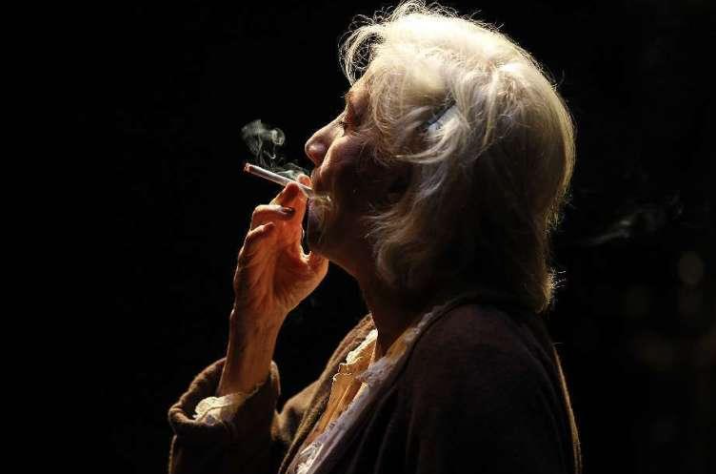It was only once, in 1964, that Olympia Dukakis had a role that could be literally described as “Young Mother” in Twice a Man. Never again, it would seem, would she be “young.” With a slew of bit parts and false starts, it genuinely wasn’t until 1987’s Moonstruck that she was born: a star. A star beyond the theater she already reigned over, that is.
Dukakis was fifty-six years old at the time of Moonstruck’s release. Such sudden praise and recognition lavished on a person—let alone a woman—in an artistic field was unheard of. Particularly in the increasingly sexist and ageist twentieth century. The fact that the movie was a Cher vehicle also made it seem highly unlikely that audiences would take note of anyone else (save for Nicolas Cage). But in her “resigned to my fate” role of Rose Castorini, the overbearing “Italian” mother of Loretta (Cher), people were hard-pressed to ignore this matriarch’s judgmental looks, hard-hitting philosophies and cries of, “Your life’s goin’ down the toilet!”
While, certainly, Moonstruck is Dukakis’ most remembered role, there were numerous films afterward that would immortalize her prowess as an actress, even if a typecast one. Here, too, it has to be said that Dukakis made a case for typecasting being irrelevant if an actor knew how to use the material to their advantage every time. And Dukakis did. With Working Girl and Look Who’s Talking following Moonstruck, it would be Steel Magnolias in 1989 that further solidified Dukakis as a “serious” actress in addition to a comedic one. That said, her role as a light-hearted widow (of the town’s former mayor), Claire Belcher, was one of many aspects the film required to cushion the blow of its ending. And, by the way, what the fuck was it with Shirley MacLaine starring in the major tear-jerkers of the 1980s?
With the dawn of the 90s, however, it seemed Dukakis lost the steam generated by Moonstruck, as many of the films she starred in either went under the radar or fizzled out quickly. One such movie was 1993’s The Cemetery Club, which reteamed her again with fellow Moonstruck alum Danny Aiello (RIP). But her real costars were Diane Ladd and Ellen Burstyn (and let us not forget a still child actress named Christina Ricci also played a part). As widows who visit their husbands’ graves once a week, it is Doris (Dukakis) who takes her devotion the most seriously. And, based on Dukakis’ own devotion to her longtime husband, Louis Zorich, a fellow theater performer she met in 1962, acting this way didn’t seem much of a stretch. His death in 2018, indeed, may very well have spurred on her own.
Not that Dukakis’ life wasn’t full and active without him. For the majority of her career, she spent her spare time as an ally and a crusader. Not only for speaking out against racism and discrimination (of which she endured heavily as a Greek-American, a quality which undeniably also affected her cousin, Michael Dukakis, in his ability to win the 1988 presidential election), but also advocating for the LGBTQIA+ community. Granted, in the present, it would likely be deemed an affront that she played Anna Madrigal, a trans landlady (instead of “letting” an actual trans person take a crack) in the true gem of her career, Tales of the City.
Her values in life reflected in the work she chose. Though that might have tapered off a bit toward the end of the 90s (but don’t forget Picture Perfect starring Jennifer Aniston remains an underrated standout). And, of course, she surely won’t be looked upon favorably for having a credit in a Woody Allen movie (Mighty Aphrodite), no matter how minuscule the part. In truth, one could say Dukakis’ career was one of minuscule parts (in film, at least) that she always managed to make larger than life.
She is, it has to be said, so much more than Moonstruck. Most significantly of all, she is that rare instance and inspiration of proving that “validation” (a.k.a. mainstream success) of one’s work can come at any age, and when you least expect it.






















